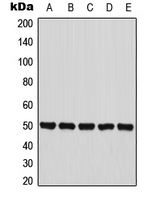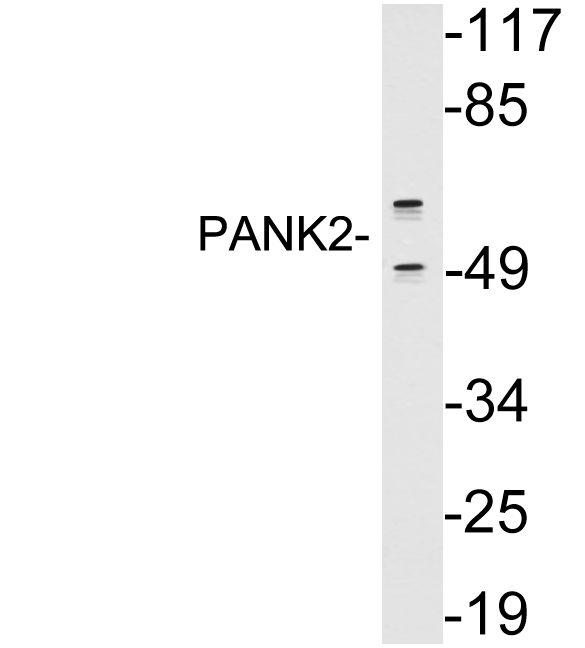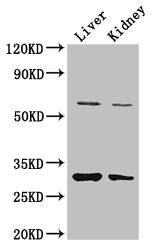
WB analysis of HepG2 (A), MCF7 (B), HT29 (C), mouse liver (D), PC12 (E) whole cell lysates using GTX56190 PANK2 antibody.
PANK2 antibody
GTX56190
ApplicationsWestern Blot
Product group Antibodies
ReactivityHuman, Mouse, Rat
TargetPANK2
Overview
- SupplierGeneTex
- Product NamePANK2 antibody
- Delivery Days Customer9
- Application Supplier NoteWB: 1:500 - 1:1000. *Optimal dilutions/concentrations should be determined by the researcher.Not tested in other applications.
- ApplicationsWestern Blot
- CertificationResearch Use Only
- ClonalityPolyclonal
- ConjugateUnconjugated
- Gene ID80025
- Target namePANK2
- Target descriptionpantothenate kinase 2
- Target synonymsC20orf48, HARP, HSS, NBIA1, PKAN, pantothenate kinase 2, mitochondrial, Hallervorden-Spatz syndrome, pantothenate kinase-associated neurodegeneration, pantothenic acid kinase 2
- HostRabbit
- IsotypeIgG
- Protein IDQ9BZ23
- Protein NamePantothenate kinase 2, mitochondrial
- Scientific DescriptionThis gene encodes a protein belonging to the pantothenate kinase family and is the only member of that family to be expressed in mitochondria. Pantothenate kinase is a key regulatory enzyme in the biosynthesis of coenzyme A (CoA) in bacteria and mammalian cells. It catalyzes the first committed step in the universal biosynthetic pathway leading to CoA and is itself subject to regulation through feedback inhibition by acyl CoA species. Mutations in this gene are associated with HARP syndrome and pantothenate kinase-associated neurodegeneration (PKAN), formerly Hallervorden-Spatz syndrome. Alternative splicing, involving the use of alternate first exons, results in multiple transcripts encoding different isoforms. [provided by RefSeq, Jul 2008]
- ReactivityHuman, Mouse, Rat
- Storage Instruction-20°C or -80°C,2°C to 8°C
- UNSPSC41116161






![WB analysis of various cell lines using GTX83944 PANK2 antibody [3H9]. Loading : 35 ug per lane](https://www.genetex.com/upload/website/prouct_img/normal/GTX83944/GTX83944_4013_WB_w_23061420_694.webp)
![FACS analysis of Jurkat cells using GTX83946 PANK2 antibody [3G4]. Red : Primary antibody Blue : Negative control antibody](https://www.genetex.com/upload/website/prouct_img/normal/GTX83946/GTX83946_250_FACS_w_23061420_696.webp)